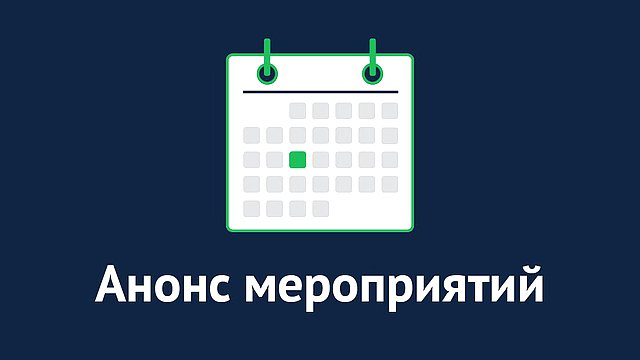On November 27, the State Duma will host a plenary meeting during which a “government hour” will be held with the participation of non-parliamentary parties on the topic “On increasing the role of the secondary vocational education system in the staffing of production sectors,” which will be attended by relevant ministers and Deputy Prime Minister of the Russian Federation Dmitry Chernyshenko , beginning at 12:00 (broadcast on the website).
Also today there will be meetings:
- Committee on Labor, Social Policy and Veterans Affairs, beginning at 9:30 (broadcast on the website);
- Committees on Energy, Industry and Trade and Control (extended joint) on the topic “On information from the General Director of the State Atomic Energy Corporation Rosatom A.E. Likhachev on the role of the nuclear industry in ensuring technological sovereignty”, beginning at 10:00 (broadcast on the website);
- Committee on Family Protection, Issues of Paternity, Maternity and Childhood, beginning at 10:00 (broadcast on the website);
- expert council under the Deputy Chairman of the State Duma Vladislav Davankov on the development of healthcare in the Russian Federation, beginning at 10:00;
- Committee on Tourism and Tourist Infrastructure Development, beginning at 10:00;
- Committee on Culture, beginning at 10:30 (broadcast on the website);
- Financial Market Committee, beginning at 10:30;
- expert council of the Committee on Health Protection on the topic “Preparedness of the pharmaceutical industry, science and health care system for the implementation of the national project “Long and active life. Achieving national goals to increase life expectancy”, beginning at 16:30.
In addition, parliamentary hearings will be held:
- Committee for the Development of the Far East and Arctic on the topic “On legislative support for the training and retention of personnel for the purpose of rapid development of the Far East and Arctic”, beginning at 10:00 (broadcast on the website);
- Committee on Agrarian Issues on the topic “Saving, targeted and efficient use of agricultural land”, beginning at 16:00 (broadcast on the website).
XII International Scientific Conference “Zinoviev Readings” on the topic “Is a just world order possible?” (organized by the faction of the party “A Just Russia – For Truth”) will begin at 13:00.
Also today there will be meetings:
- Committee on Information Policy, Information Technologies and Communications, beginning at 14:00;
- Committee on Ecology, Natural Resources and Environmental Protection on the issue of finalizing for the second reading PFZ Nº 446965–8 “On amendments to the Forest Code of the Russian Federation in terms of legal regulation of the harvesting of food forest resources”, beginning at 16:00 (broadcast on the website).
**How might the Duma’s focus on strengthening secondary vocational education contribute to addressing Russia’s current labor market challenges and skills gap?**
## World Today News: In-Depth Analysis of the State Duma’s Busy Agenda
**(Intro Music)**
**Host:** Welcome back to World Today News. Today, we’ll be dissecting the packed agenda facing the State Duma on November 27th. To help us navigate these important discussions, we have two distinguished guests:
* **Dr. Irina Petrova,** a leading expert on Russian political science and parliamentary procedures.
* **Mr. Dmitri Kozlov,** an economist specializing in education and labor market trends.
Welcome to both of you.
**(Guests greet the Host)**
**Host:** Let’s jump right in. The Duma’s agenda today is centered around several key themes: education, the economy, social welfare, and energy. Dr. Petrova, could you shed light on the significance of the “government hour” focused on the role of secondary vocational education in the workforce?
**(Section 1: Education and Workforce Development)**
* **Host:** Dr. Petrova, what are the potential economic and social implications of strengthening secondary vocational education? How might this address current labor market challenges?
* **Host:** Mr. Kozlov, can you elaborate on the skills gap in Russia’s production sectors? How can vocational education bridge this gap and contribute to a more skilled workforce?
* **Host:** Dr. Petrova, what are the potential hurdles in implementing policies to bolster vocational education? What role should the government and private sector play in this endeavor?
**(Section 2: Energy and Technological Sovereignty)**
* **Host:** Moving on to energy, we see that the Duma will be hearing from the head of Rosatom about the nuclear industry’s role in technological sovereignty. Mr. Kozlov, how significant is this topic in Russia’s current geopolitical context?
* **Host:** Dr. Petrova, what are the potential geopolitical implications of Russia’s focus on nuclear energy? How might this impact its relationships with other nations?
* **Host:** Mr. Kozlov, what are the economic and environmental considerations surrounding the expansion of nuclear energy? How can these be balanced alongside the pursuit of technological independence?
**(Section 3: Social Issues and Healthcare)**
* **Host:** The Duma’s agenda also includes sessions on healthcare, tourism, culture, and family policy. Dr. Petrova, how does this wide range of topics reflect the current priorities of the Russian government?
* **Host:** Mr. Kozlov, what are the key challenges facing Russia in the areas of healthcare and family policy? How might the Duma’s discussions today contribute to finding solutions?
**(Section 4: Regional Development and Agriculture)**
* **Host:** The agenda also features discussions on the development of the Far East and Arctic, as well as the sustainable use of agricultural land. Dr. Petrova, what are the strategic imperatives behind these focus areas?
* **Host:** Mr. Kozlov, what are the economic opportunities and potential risks associated with developing the Far East and Arctic regions?
**(Conclusion)**
**Host:** Thank you both for your insightful commentary. Today’s packed agenda in the State Duma highlights the multifaceted challenges and priorities facing Russia. We’ve explored key themes of education, economy, energy, social welfare, and regional development. I encourage our viewers to follow these discussions closely as they unfold and invite you to share your own thoughts on these critical issues.
**(Outro Music)**

)
